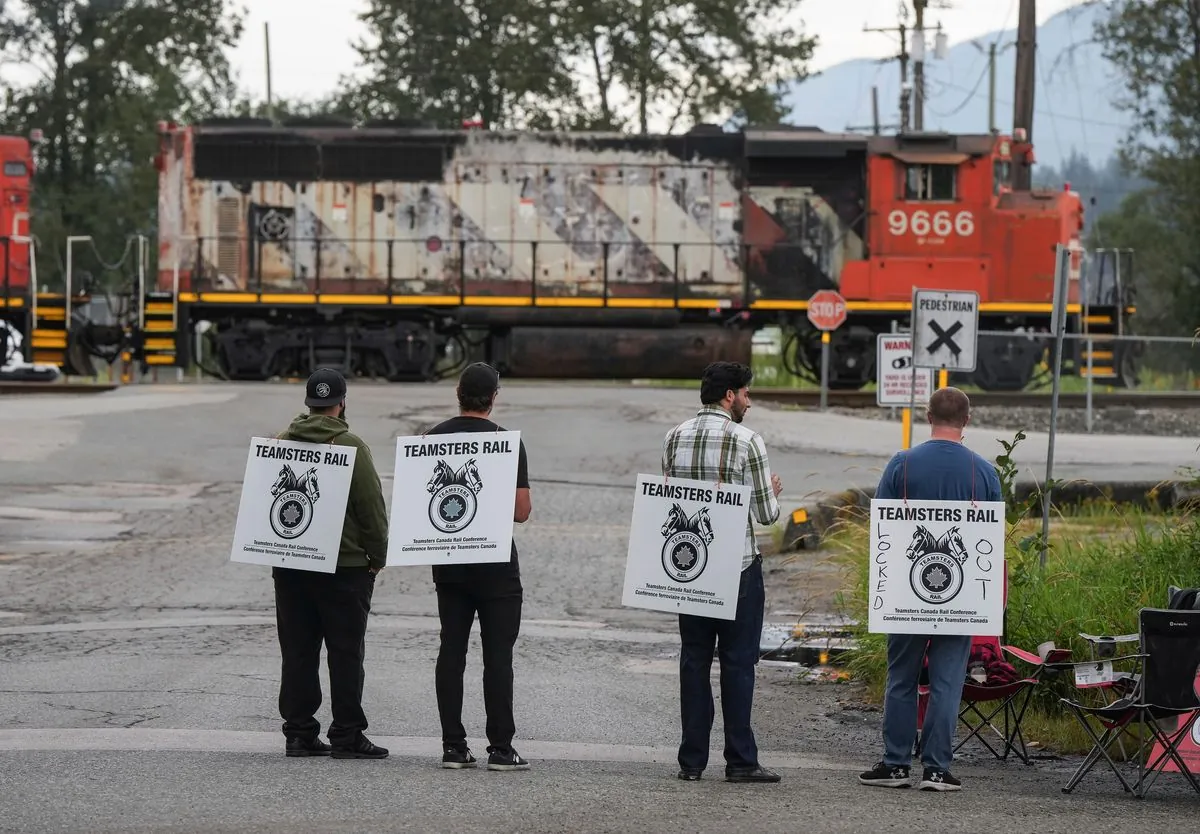Canadian Labor Board Halts Railway Strikes, Unions Plan Legal Challenge
Canada's labor board orders end to rail work stoppages, imposing binding arbitration. Teamsters union criticizes decision, plans federal court appeal. Move aims to prevent economic damage and restart crucial railway operations.

In a significant development for Canada's transportation sector, the Canada Industrial Relations Board (CIRB) has mandated an end to work stoppages at the country's major railways. This decision, made on August 24, 2023, aims to prevent potential economic disruption and ensure the continuation of crucial freight services across the world's second-largest country by area.
The CIRB's ruling affects over 9,000 members of the Teamsters Canada Rail Conference, who are employed by Canadian National Railway (CN) and Canadian Pacific Kansas City (CPKC). This intervention comes after separate negotiations between the union and the railway companies reached an impasse, prompting concerns about the impact on Canada's export-driven economy.
Paul Boucher, president of the Teamsters Canada Rail Conference, expressed strong disapproval of the decision, stating:
"This decision by the CIRB sets a dangerous precedent. It signals to corporate Canada that large companies need only stop their operations for a few hours, inflict short-term economic pain, and the federal government will step in to break a union."
The union has announced its intention to challenge the ruling in federal court, arguing that workers' rights have been "significantly diminished" by the board's decision.

The CIRB's order includes the implementation of binding arbitration to reach new agreements and the continuation of existing contracts until new ones are established. This move is designed to swiftly restore railway operations, particularly at CPKC, where workers had been both locked out and on strike.
Steven MacKinnon, Canada's Labour Minister, expressed expectations for railway companies and employees to resume operations promptly. The government's intervention underscores the critical role that rail transport plays in Canada's economy, facilitating the movement of a wide range of commodities and goods across the vast country.
While CN and CPKC have expressed satisfaction with the resolution, both companies emphasized their preference for negotiated agreements. CPKC anticipates that it may take several weeks for the railway network to fully recover from the work stoppage, with additional time needed for supply chains to stabilize.
The labor disputes centered on issues such as working conditions, scheduling, and shift durations. For instance, CN sought to extend employee shifts from 10 to 12 hours, a proposal opposed by the union.
This situation highlights the delicate balance between workers' rights and economic stability in Canada's critical industries. The government's decision to refer the matter to the CIRB was based on its broad powers under the Canadian Labour Code, reflecting the importance of maintaining uninterrupted rail services.
The impact of these labor disputes extends beyond Canada's borders, affecting cross-border trade with the United States. Mike Steenhoek, executive director of the U.S. Soy Transportation Coalition, emphasized the importance of seamless cross-border trade for American farmers.
As the situation unfolds, the resolution of these labor disputes will likely have far-reaching implications for labor relations in Canada's transportation sector and the country's economic resilience in the face of industrial action.


































